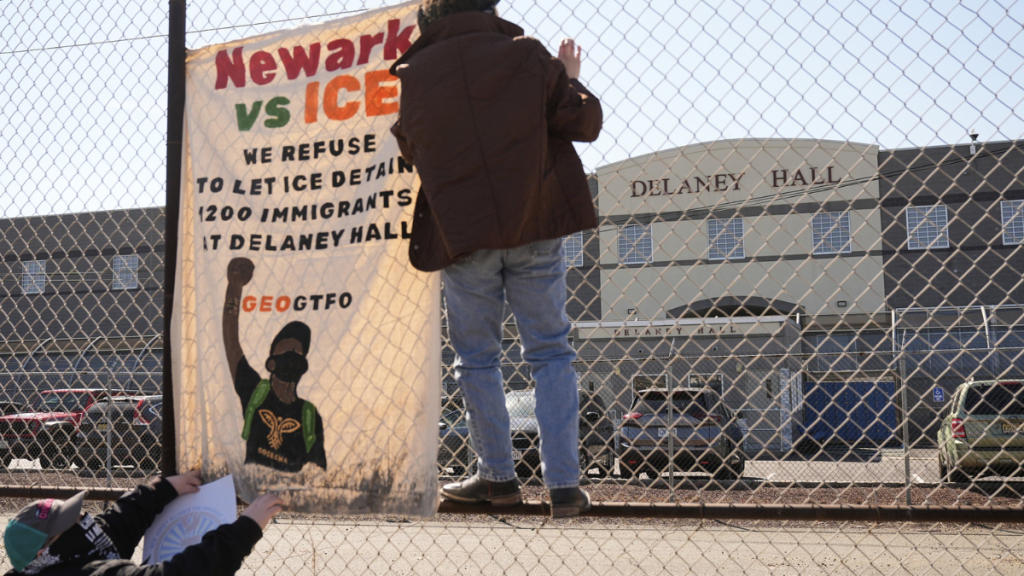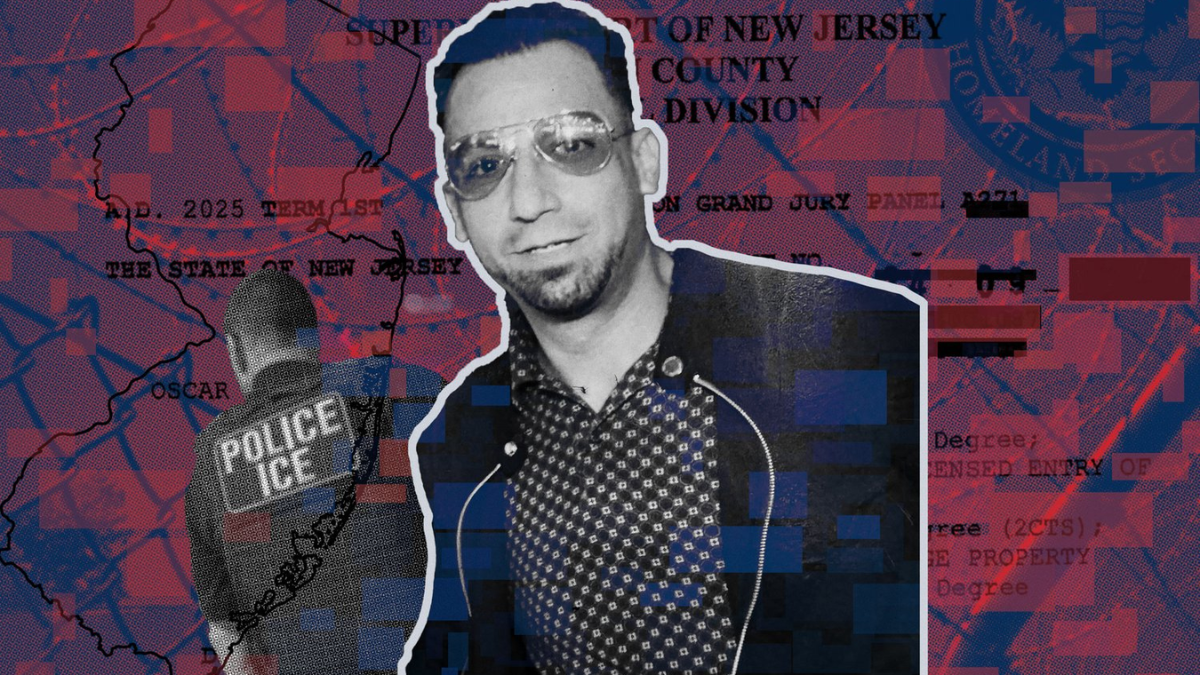JERSEY CITY, N.J. — For over two decades, Oscar Muñoz lived what many would call the American Dream. After arriving in the United States from Puebla, Mexico, at the age of 14, he worked hard, built a family, and opened Taco Drive, a vibrant restaurant serving authentic Mexican food in New Jersey.
But in 2024, Muñoz’s dream took a dramatic and unexpected turn. Following a minor criminal charge, he was detained by U.S. Immigration and Customs Enforcement (ICE), placing his life, family, and livelihood in jeopardy.
A 25-Year Legacy in New Jersey
Muñoz spent 25 years in the U.S., raising two children and establishing roots in Jersey City. His restaurant, Taco Drive, became a neighborhood staple—known not only for its flavorful street tacos and colorful décor but also for the welcoming environment Muñoz created for all customers.
Friends and customers described Muñoz as hardworking, generous, and deeply involved in his community. His children, both U.S. citizens, attend school locally and have never known life without their father. By all accounts, Muñoz had built a life many immigrants hope to achieve.
Unexpected Detention
Muñoz’s legal troubles began in 2024, when Hoboken police arrested him on charges that included trespassing, criminal mischief, and property damage. According to police reports, Muñoz was intoxicated at the time of the incident and allegedly broke a window to enter a building.
While the charges were ultimately resolved at the state level—he was released after two days—ICE took him into custody shortly thereafter.
Without the opportunity for bail, Muñoz was transferred to the Moshannon Valley Processing Center in Pennsylvania, a privately run immigration detention facility operated by GEO Group, Inc.
There, he has remained for over a year, separated from his family and unable to run his restaurant.
Life Behind Barbed Wire
Conditions at Moshannon Valley have added another layer of hardship. In interviews conducted with reporters, Muñoz said detainees are forced to purchase essential hygiene items such as toothpaste, deodorant, and soap.
He noted the facility’s commissary prices are significantly higher than market rates, creating a financial burden for detainees and their families.
Despite the challenges, Muñoz has managed to maintain a sense of purpose by volunteering in the kitchen. He has prepared meals for fellow detainees—mostly simple comfort foods like tacos, beans, and rice—helping to create a small sense of community and dignity inside the facility.

A Broader Problem
Muñoz’s story is not unique. According to data from the Transactional Records Access Clearinghouse (TRAC) at Syracuse University, ICE detains tens of thousands of individuals annually—many of whom, like Muñoz, have lived in the United States for decades and have family and business ties to the community.
Critics argue that the use of detention, especially in cases involving low-level charges or first-time offenses, is excessive and harms families more than it protects the public.
Advocacy groups also point to the growing use of privately operated detention centers, where profit motives may contribute to substandard conditions and reduced oversight.
For Muñoz, the consequences are deeply personal. His family is struggling both emotionally and financially. With Taco Drive closed indefinitely, the community has lost a beloved gathering space, and his children now face the possibility of growing up without their father.
Community Response and Advocacy
Local immigrant rights organizations and community leaders have rallied around Muñoz’s family, urging ICE to consider his long-standing presence in the U.S. and the impact of his detention on his children.
A petition calling for his release has garnered hundreds of signatures, and legal experts are working on an appeal to prevent deportation.
Despite his prolonged detention, Muñoz remains hopeful. He dreams of returning to Jersey City, reopening Taco Drive, and continuing to provide for his family. “This country gave me a chance,” he told visitors during a detention center interview. “I’ve worked hard, paid taxes, raised a family. I just want to go home.”
The Legal Landscape
Immigration and Customs Enforcement maintains that it enforces federal laws and detains individuals who may pose a public safety threat or who are subject to removal proceedings. ICE’s policies allow for detention even after criminal charges are dropped, depending on a person’s immigration status.
For immigrants like Muñoz, the risk of detention remains constant, especially without legal documentation or permanent residency.
Many rely on support from legal aid organizations, such as the American Immigration Council and the National Immigration Law Center, to navigate complex immigration laws and advocate for relief.
Conclusion
Oscar Muñoz’s case is a stark reminder that the American Dream remains fragile for many undocumented immigrants—even those who have spent the majority of their lives contributing to their communities.
As his family waits for answers and advocates fight for his release, the broader debate over immigration enforcement and detention continues to unfold at the national level.
His story, like those of thousands of others, raises urgent questions about fairness, humanity, and the future of immigration policy in the United States.
Disclaimer – Our team has carefully fact-checked this article to make sure it’s accurate and free from any misinformation. We’re dedicated to keeping our content honest and reliable for our readers.
